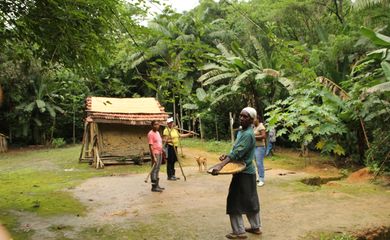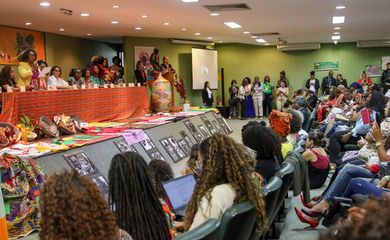Around 300 quilombola territories to be titled by 2026 in Brazil

In an interview with Gov Channel this week, Anielle Franco, Brazil's Minister of Racial Equality, reiterated the federal government's commitment to regularize a minimum of 300 quilombola territories before the culmination of her current administration in December 2026.

"The issue of territorial access has consistently been of paramount importance in our nation. It constitutes a struggle that necessitates our renewed focus on nationwide titling efforts. Comparatively, during the preceding federal administration spanning from 2019 to 2022, only one quilombola territory received its title through a court mandate. In the first six months of 2023, we have already successfully titled five quilombola territories. Our aspiration is to achieve the titling of 300 territories before the conclusion of our mandate," Franco expressed. The minister participated this week in the Amazon Dialogues, a preparatory event for the Amazon Summit which brought together thousands of representatives of entities, social movements, universities, research centers, and government agencies to discuss climate change, sustainability, and economic and social development in the Amazon.
"True understanding of the Amazon lies within its inhabitants, just as genuine knowledge about the favelas originates from the residents themselves. Our collaborative efforts with civil society to advance land titling actions are a testament to our commitment to dialogue and tangible progress," the minister remarked.
Franco further cited the Aquilomba Brasil program, launched in March as an exemplar of concrete action. Derived from the expansion of the Brazil Quilombola Program of 2007, Aquilomba Brasil encompasses a range of interdisciplinary measures aimed at upholding the rights of the quilombola population, descendants of enslaved individuals. The program prioritizes four thematic axes: access to land, infrastructure, and quality of life; productive inclusion; local development; and rights and citizenship. The Ministry of Racial Equality estimates that this program, driven by new objectives and an extended strategy for rights access, will directly or indirectly benefit approximately 214,000 families. Examples of benefits include land titling and encouragement for quilombolas to pursue higher education.
During the event, a technical cooperation agreement was established to address environmental racism faced by the quilombola community on Marajó Island, which, according to Franco, exhibits one of Brazil's lowest Human Development Index scores.
"Black individuals constitute 80 percent of the Legal Amazon population. Our census approximates that there are one million quilombola individuals across the nation, with a third of them situated in the Legal Amazon. This necessitates enhanced contemplation and discourse on the subject. To facilitate this, we are in the process of creating a committee and a secretariat within the ministry to provide support for these communities," Franco concluded.



